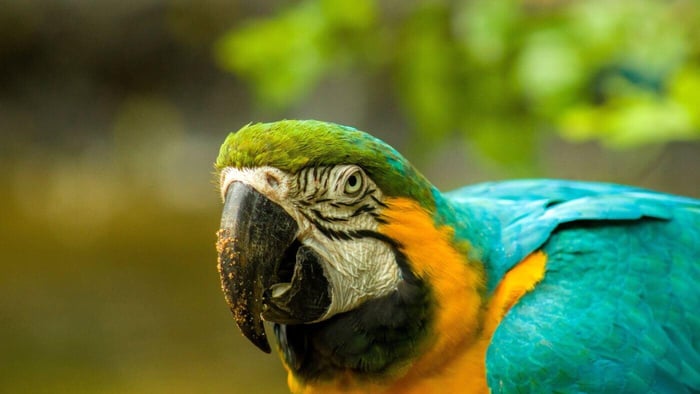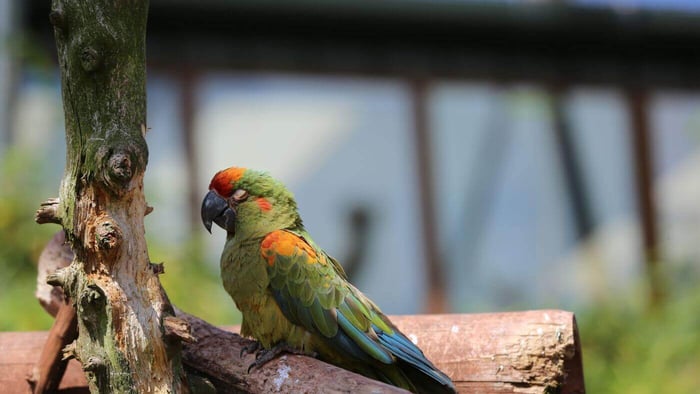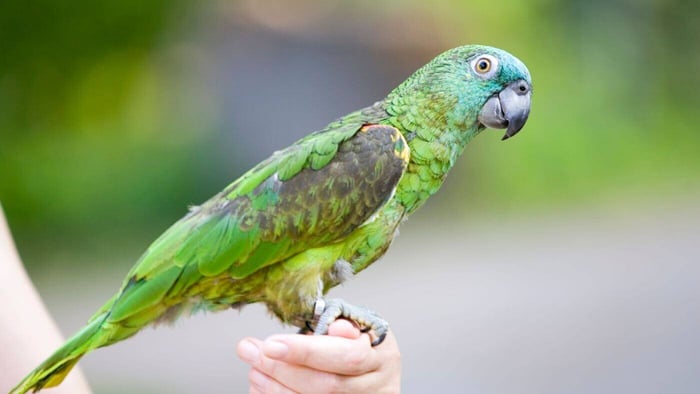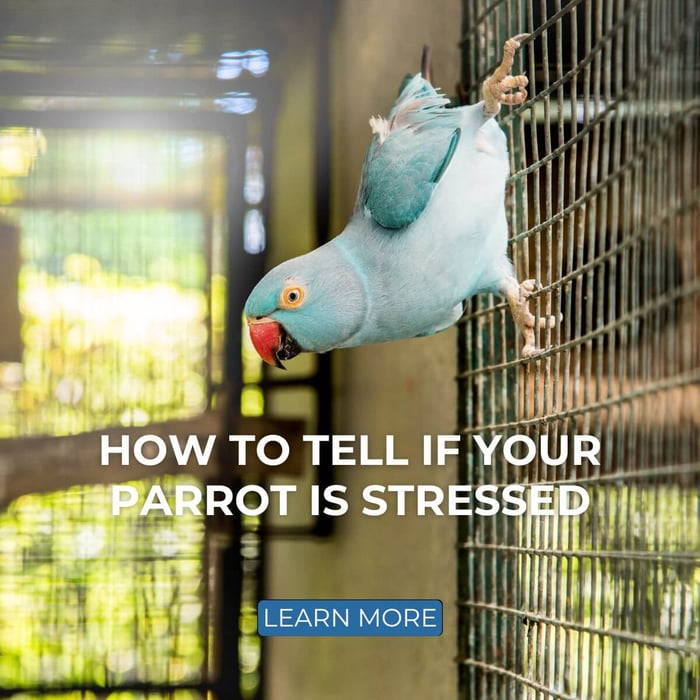Stressed Parrot - Causes & Solutions
If you have some experience with parrots, you'll know that these birds can be prone to stress. They need a lot of mental stimulation and attention, and they can be sensitive to stressors like new things. Stress can have a detrimental effect on a parrot's health, so it's important to make sure your bird stays happy in order for it to stay healthy. But how do you recognise a stressed parrot? What causes parrot stress, and what can you do?
Let's go into what you need to know about identifying and helping a stressed parrot.
How to Recognise a Stressed Parrot
As in humans, parrots can experience different degrees of stress. It's not realistic to think you can prevent any and all stress in your bird: sometimes Polly just has to go to the vet, get his nails clipped, or will even just be startled by a slamming door or a bird flying outside. Although it's important to use positive reinforcement training to make these events less scary, some short-term stress is usually not harmful.
More concerning is chronic stress. A parrot experiencing constant stressors can start to experience health issues and exhibit damaging stress behaviours. Let's take a look at how you can recognise a seriously stressed parrot.
- Feather plucking is probably most commonly associated with a stressed parrot. It indicates current stress but can also point to past trauma, as it's a habit that can become addictive to these birds.
- Unwanted behaviours like excessive screaming and aggression can point to a parrot feeling anxious and uncomfortable.
- Stress bars are faint lines that run through a feather and can indicate chronic anxiety, illness or a bad diet (factors which can also be related to each other).
- Loss of appetite can point to stress, illness or both.
- Repetitive behaviours like pacing to alleviate stress from extreme boredom.
Did you know? Chronic feather plucking can cause feathers to become unable to grow back. This is why you'll often see (partially) bald rescue birds, who, due to trauma and chronic plucking, will sometimes never regain their plumage.
A relaxed parrot tends to fluff up, doze off, preen itself and generally appear comfortable.
What Causes Parrot Stress?
If you've concluded that your parrot is stressed, it's important to take away stressors as much as you can. Some parrot stress can be alleviated through training, but other factors are more environmental.
- Parrots have evolved to be extremely good at problem-solving, and lack of mental stimulation can cause boredom-induced stress.
- Lack of social interaction is a very severe stressor for these highly social birds.
- A recent change in environment, like after adopting a new parrot, can temporarily cause high levels of stress.
- Aspects of the environment, like outside birds, loud noises, or a change in schedule, may affect your bird.
- Mistreatment or even a well-meaning parrot parent not being aware of how to approach their bird can cause parrot stress and aggression.
Did you know? Research has suggested that pulling parrots from their parents too early to hand-raise them can cause sensitivity to stress later in the bird's life.
How Can You Help a Stressed Parrot?
If you're dealing with a stressed parrot, the above should hopefully have helped identify what could be the problem. But how do you make your bird feel better? Obviously, the solution depends on what you're dealing with.
It's always a matter of removing the stressor if possible, keeping the parrot entertained, training for desensitisation and even training yourself to better understand your feathered friend.
- If your parrot is lonely or bored, you will have to invest more time or consider purchasing a second bird. You should also rotate a good selection of parrot toys and foraging options. Offer out-of-cage time daily.
- It can help to increase the time dedicated to training, especially to get your bird used to new things. This can really help if the parrot is scared of certain recurring things, like going to the vet, new people, or even wearing a hat on some days.
- Make sure you understand how to approach a parrot. They're not cats or dogs! We have plenty of articles for you to explore which can help you understand your bird. You could even search for a bird trainer to teach you.
Tip: Parrots in the wild are pretty structured beings. In your home, make sure your bird gets plenty of sleep and a good diet. Always be calm around your feathered friend, and consider leaving the TV or some soothing music on when you leave.
Creating a Calm and Safe Environment for Your Parrot
Creating the right environment is key to reducing stress in your parrot. Parrots are sensitive creatures and need to feel secure in their surroundings.
- Provide a Quiet, Secure Space - Place your parrot's cage in a quiet area, away from loud noises and traffic. Ensure they have a private, calm place to retreat to when they feel stressed.
- Provide Comforting Background Noise - If your parrot is anxious when left alone, try leaving soothing music or the TV on. This can help prevent feelings of isolation and provide a calming atmosphere.
- Ensure Proper Sleep - Parrots need plenty of sleep to maintain their mental and physical health. Make sure your parrot has a regular sleep schedule and a quiet, dark space to sleep.
- Keep Their Cage Clean and Comfortable - A clean, comfortable cage with adequate perches, toys, and a variety of food and water options is essential for your parrot's well-being. Make sure the cage is spacious enough for them to move around and feel comfortable.
The Role of Nutrition in Stress Management
A parrot's diet plays a significant role in their overall health and ability to cope with stress. Malnutrition or an imbalanced diet can exacerbate stress and lead to other health problems. To keep your parrot in top condition:
- Offer a Balanced Diet - Ensure your bird receives a variety of foods, including pellets, fresh fruits and vegetables, and healthy seeds. A balanced diet supports your parrot's immune system and reduces stress.
- Avoid Overfeeding or Underfeeding - Obesity or malnutrition can both lead to stress in parrots. Make sure your bird is eating the right amount of food, and avoid offering too many treats.
- Provide Fresh Water - Ensure your parrot always has access to clean, fresh water. Dehydration can add to stress and health issues.
Conclusion
Stress is common in pet parrots due to a variety of reasons, but in many cases, it doesn't have to be that way. Make sure you can recognise the causes of a stressed parrot and know how to deal with them in order to keep your bird healthy and happy.




